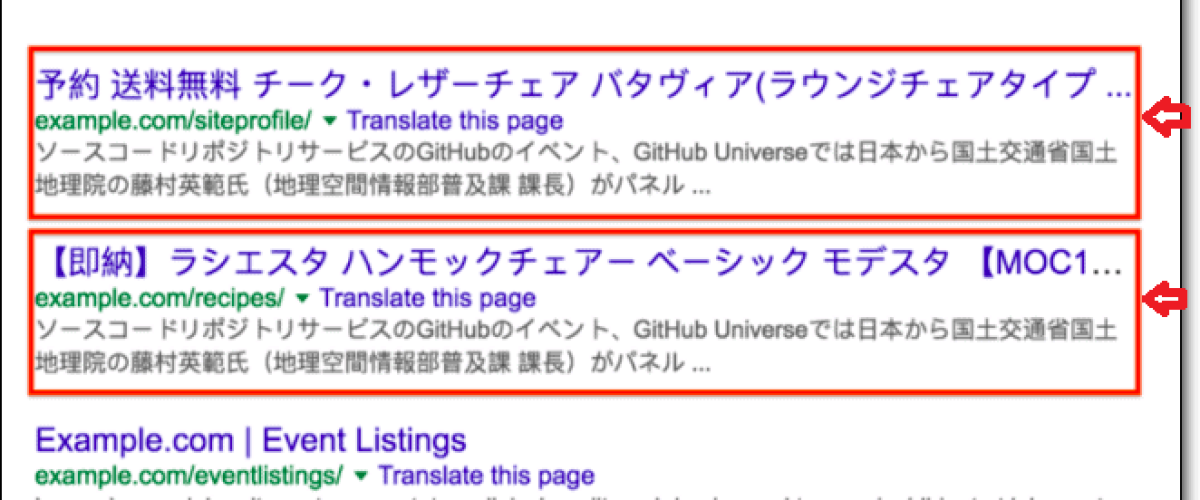In the vast landscape of the internet, maintaining the integrity of search results is paramount for both users and website owners. However, the issue of search results spam, particularly in the Chinese language, has plagued many WordPress websites. The presence of irrelevant, low-quality, and often malicious content not only diminishes user experience but also hampers the credibility and visibility of legitimate websites. Fortunately, there are effective strategies and tools available to combat Chinese search results spam in WordPress. In this comprehensive guide, we will delve into the root causes of this issue and provide step-by-step solutions to protect your WordPress website from this menace.
Table of Contents:
1. Understanding Chinese Search Results Spam
2. The Impact of Chinese Search Results Spam on WordPress Websites
3. Identifying the Root Causes of Chinese Search Results Spam
4. Steps to Combat Chinese Search Results Spam in WordPress
a. Strengthening Website Security
b. Implementing Robust User Authentication
c. Using Reliable WordPress Themes and Plugins
d. Optimizing Website Structure and Content
e. Employing Anti-Spam Plugins and Tools
f. Monitoring and Reporting Spam
g. Utilizing CAPTCHA and Other Verification Mechanisms
h. Enabling Safe Browsing Features
5. Best Practices to Prevent Chinese Search Results Spam
a. Regularly Update WordPress Core, Themes, and Plugins
b. Secure User Registration and Comment Systems
c. Install a Reputable Security Plugin
d. Strengthen Password Policies
e. Implement Content Moderation and Review Processes
f. Conduct Periodic Security Audits
6. Conclusion
Understanding Chinese Search Results Spam:
Chinese search results spam refers to the phenomenon where websites, often with malicious intent, manipulate search engine rankings and flood search results with irrelevant or low-quality content. This practice adversely affects the user experience and undermines the credibility of legitimate websites. Chinese search results spam can manifest in various forms, including keyword stuffing, content scraping, hidden links, and malicious redirects.
The Impact of Chinese Search Results Spam on WordPress Websites:
For WordPress website owners, Chinese search results spam poses significant challenges. It dilutes the visibility of authentic content, making it difficult for users to find relevant information. This results in decreased organic traffic, lower rankings, and potential loss of revenue. Moreover, search results spam can harm a website’s reputation, leading to mistrust among users and damaging the overall user experience.
Identifying the Root Causes of Chinese Search Results Spam:
Understanding the root causes of Chinese search results spam is crucial in formulating an effective defense strategy. Common causes include vulnerable plugins and themes, outdated software, weak user authentication systems, and lax security measures. Exploiting these vulnerabilities, spammers can inject spammy links, scripts, or content into the website’s pages, ultimately manipulating search engine algorithms and polluting search results.
Steps to Combat Chinese Search Results Spam in WordPress: To safeguard your WordPress website from Chinese search results spam, follow these actionable steps:
- Strengthening Website Security: Implement robust security measures such as SSL certificates, firewall protection, and secure hosting providers. Regularly update WordPress core, themes, and plugins to patch any security vulnerabilities.
- Implementing Robust User Authentication: Enforce strong password policies, enable two-factor authentication (2FA), and limit login attempts to prevent brute-force attacks and unauthorized access.
- Using Reliable WordPress Themes and Plugins: Choose reputable themes and plugins from trusted sources. Conduct thorough research and read reviews to ensure they have a solid reputation and receive regular updates.
- Optimizing Website Structure and Content: Craft well-structured, SEO-friendly content with relevant keywords. Optimize meta tags, headings, and image alt attributes to improve search engine visibility.
- Employing Anti-Spam Plugins and Tools: Install anti-spam plugins like Akismet or Antispam Bee to detect and filter spammy comments and trackbacks. These plugins use various techniques to analyze and block spam submissions.
- Monitoring and Reporting Spam: Regularly monitor your website’s comments, user-generated content, and suspicious activity. Promptly report any detected spam to your hosting provider or search engines.
- Utilizing CAPTCHA and Other Verification Mechanisms: Use CAPTCHA or reCAPTCHA tools to verify user interactions, prevent automated spam submissions, and distinguish between human users and bots.
- Enabling Safe Browsing Features: Enable safe browsing features provided by web browsers or security plugins to warn users about potentially harmful websites.
Best Practices to Prevent Chinese Search Results:
In addition to the aforementioned steps, consider implementing these best practices:
- Regularly Update WordPress Core, Themes, and Plugins: Keeping your WordPress installation and associated components up to date helps ensure that security vulnerabilities are patched promptly.
- Secure User Registration and Comment Systems: Employ measures such as user approval, email verification, and moderation for user registration and comment systems to prevent spam registrations and content.
- Install a Reputable Security Plugin: Utilize a reputable security plugin that provides features like file integrity monitoring, malware scanning, and firewall protection.
- Strengthen Password Policies: Encourage strong passwords and implement password expiration policies to minimize the risk of compromised accounts.
- Implement Content Moderation and Review Processes: Regularly review and moderate user-generated content to identify and remove spammy or irrelevant submissions.
- Conduct Periodic Security Audits: Perform routine security audits to identify potential vulnerabilities, such as outdated plugins or misconfigurations, and promptly address them.
Conclusion:
Combatting Chinese search results spam in WordPress requires a proactive approach that involves strengthening website security, implementing robust user authentication, optimizing website structure and content, and employing anti-spam plugins and tools. By following the steps and best practices outlined in this comprehensive guide, you can protect your WordPress website from Chinese search results spam and ensure a safer and more reliable user experience.
If your WordPress website has fallen victim to malware, it’s essential to act swiftly to protect your data and restore your website’s integrity. Our WordPress Malware Removal services are designed to help you eliminate malicious code, identify vulnerabilities, and secure your website against future attacks. Our team of experts will conduct a thorough scan, remove malware infections, and clean your WordPress installation. We’ll also provide recommendations to strengthen your website’s security and implement preventive measures. With our professional assistance, you can regain control of your WordPress site and ensure a safe and secure online presence.
FAQ To Fix Chinese Search Results Spam in WordPress
Q1: What is Chinese search results spam in WordPress?
A1: Chinese search results spam refers to the practice of manipulating search engine rankings in Chinese search queries by flooding the results with irrelevant, low-quality, or malicious content. It negatively impacts user experience and undermines the credibility of legitimate websites.
Q2: How does Chinese search results spam affect my WordPress website?
A2: Chinese search results spam can diminish the visibility of your website’s authentic content, leading to decreased organic traffic, lower rankings, and potential loss of revenue. It also damages your website’s reputation, resulting in mistrust among users and a negative user experience.
Q3: What are the common causes of Chinese search results spam?
A3: Chinese search results spam can occur due to various factors, including vulnerable plugins and themes, outdated software, weak user authentication systems, and lax security measures. Spammers exploit these vulnerabilities to inject spammy links, scripts, or content into your website’s pages.
Q4: How can I combat Chinese search results spam in WordPress?
A4: To combat Chinese search results spam in WordPress, you can take the following steps:
- Strengthen your website’s security measures, including implementing SSL certificates, firewall protection, and secure hosting providers.
- Enforce robust user authentication practices such as strong passwords, two-factor authentication (2FA), and limiting login attempts.
- Use reliable WordPress themes and plugins from trusted sources and keep them updated regularly.
- Optimize your website’s structure and content, ensuring it is well-structured, SEO-friendly, and uses relevant keywords.
- Employ anti-spam plugins and tools like Akismet or Antispam Bee to detect and filter spammy comments and trackbacks.
- Monitor your website for spam and promptly report any detected spam to your hosting provider or search engines.
- Utilize CAPTCHA or reCAPTCHA tools to verify user interactions and prevent automated spam submissions.
- Enable safe browsing features provided by web browsers or security plugins to warn users about potentially harmful websites.
Q5: What are the best practices to prevent Chinese search results spam?
A5: In addition to the above steps, consider implementing these best practices:
- Regularly update WordPress core, themes, and plugins to patch security vulnerabilities.
- Secure user registration and comment systems by employing measures like user approval, email verification, and moderation.
- Install a reputable security plugin that offers features like file integrity monitoring, malware scanning, and firewall protection.
- Encourage strong passwords and implement password expiration policies to minimize the risk of compromised accounts.
- Implement content moderation and review processes to identify and remove spammy or irrelevant user-generated content.
- Conduct periodic security audits to identify potential vulnerabilities and promptly address them.
Q6: Can I completely eliminate Chinese search results spam in WordPress?
A6: While it may not be possible to completely eliminate Chinese search results spam, implementing the recommended steps and best practices significantly reduces the risk. Regular monitoring, maintenance, and staying updated with the latest security measures will help you combat the issue effectively.
Q7: Are there any plugins specifically designed to address Chinese search results spam? A7: There are no specific plugins designed solely for Chinese search results spam. However, general anti-spam plugins like Akismet, Antispam Bee, or other security plugins provide effective spam detection and filtering capabilities that can help combat Chinese search results spam.
Q8: Is it necessary to involve search engines or hosting providers to combat Chinese search results spam?
A8: While it’s not mandatory, reporting spam to search engines and hosting providers can be beneficial. They have mechanisms in place to detect and penalize spammy websites, ultimately improving the overall quality of search results. Hosting providers can also provide assistance in mitigating spam attacks and improving website security.
Q9: How frequently should I update my WordPress installation and associated components?
A9: It is recommended to update your WordPress core, themes, and plugins as soon as new updates are available. Regular updates ensure that security vulnerabilities are patched promptly and reduce the risk of exploitation by spammers.
Q10: What should I do if I suspect Chinese search results spam on my WordPress website?
A10: If you suspect Chinese search results spam on your WordPress website, take immediate action. Follow the steps outlined in this guide, such as strengthening security measures, using anti-spam plugins, and monitoring and reporting spam. Consider reaching out to your hosting provider for assistance or seeking professional help if needed.

